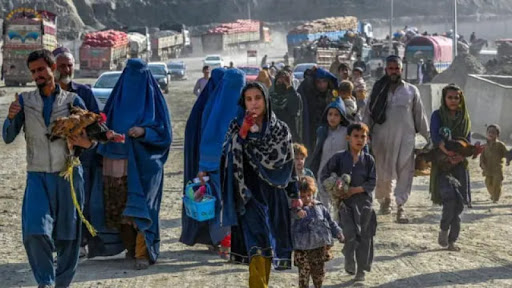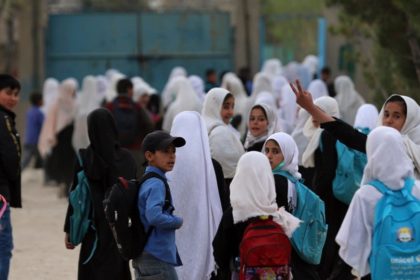RASC News Agency: In the latest wave of forced returns from neighboring countries, the Taliban have reported that 1,371 Afghanistani families arrived in Afghanistan within the past 24 hours. Bakhtar News Agency, which operates under Taliban control, stated on Monday, Aug 25, that according to the Taliban-appointed Commission for Addressing Migrant Issues, the arrivals occurred through multiple border crossings: 706 families via Torkham in Nangarhar, 80 families through Spin Boldak in Kandahar, 29 families at Pul-e-Abreshim in Nimroz, 5 families via Angor Ada in Paktika, 6 families through Bahramcha in Helmand, and 545 families via Islam Qala in Herat. These arrivals represent only a fraction of the recent expulsions from neighboring states; a day earlier, more than 1,000 families had also been forcibly returned.
The accelerating expulsions from Iran and Pakistan, combined with the Taliban’s complete lack of organized planning or infrastructure to manage these returns, have left thousands of families facing severe humanitarian challenges. Many returnees arrive with no shelter, limited food, and minimal access to basic services, receiving virtually no assistance from Afghanistan’s ruling authorities. The Taliban’s failure to implement even basic reception mechanisms has effectively abandoned vulnerable populations to survive on their own. International organizations have repeatedly sounded the alarm over the worsening humanitarian disaster. Afghanistan’s fragile socio-economic environment, compounded by prolonged drought, economic collapse, and decades of conflict, has left millions of Afghanistani citizens acutely vulnerable. Yet under Taliban rule, there remains no coherent framework for processing returning migrants, delivering emergency aid, or coordinating long-term support. Consequently, the burden of this crisis has fallen disproportionately on international NGOs and local communities, who are struggling to respond to growing needs.
Human rights organizations and humanitarian observers warn that the continuation of mass expulsions without adequate support or planning will inevitably worsen poverty, homelessness, and social instability. Children, women, and the elderly among the returnees are particularly exposed to malnutrition, disease, and violence. The absence of a responsible governing authority capable of managing these challenges has trapped the population in an expanding cycle of suffering. The ongoing crisis underscores the urgent need for immediate, coordinated international intervention. While the global community continues to provide emergency assistance, the Taliban’s persistent inaction, mismanagement, and refusal to assume responsibility have sharply diminished prospects for mitigating the humanitarian emergency. Without decisive action, the forced return of thousands of Afghanistani families risks deepening a social catastrophe, further destabilizing a country already teetering on the edge of economic and humanitarian collapse.






